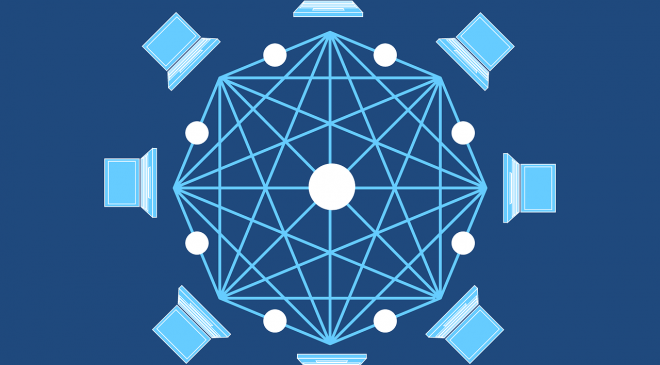
How does AI fit into the constantly shifting world?
Before the global health crisis, leaders believed in AI as a strategic investment for their line of business. Though motivation varied depending on the sub-geography within APAC and the industry, overall, this vision was driven by the promise of greater productivity, improved agility, and enhanced customer satisfaction.
In 2021, this eye to the future and willingness to invest has remained relatively unchanged, even in the face of unprecedented, worldwide economic instability, according to some of the top highlights from the 2021 IDC InfoBrief sponsored by Daiku, including trends and best practices in AI maturity for APAC for 2021-2022 and beyond.
To be clear, this doesn’t mean every company is investing in AI — the number of “AI-free” organisations in APAC remains high (61 per cent vs. 80 per cent in 2020). But for those that have, there is no shortage of profitable use cases. Top use cases among APAC businesses investing in AI range from broad, horizontal projects that span multiple business lines and industries to more tailored, vertical-specific use cases.
One of the most important trends in 2021 for APAC is the increasing importance of processes that ensure systematic execution and continuous improvement of AI systems. Given the context — the overall maturity of companies that have invested in AI has increased, with half of companies in stage three or four now, as opposed to stage one or two in 2020 — this makes sense.
More models in production mean more complexity, which leads to the need to “standardize and monitor data, models, and business operations for effective communication, tracking, learning, and adaptation of AI implementations.” It all comes down to mitigating risk, and part of the answer is ensuring that AI governance is sound.
In Australia the Australian Information Industry Association (AIIA) called on the Federal Government to allocate A$250 million in the May budget to ensure Australia becomes a global leader in AI research and commercialisation and doesn’t fall behind its international peers.
When the Government does announce its National Artificial Intelligence (AI) Strategy it must come with significant funding over the A$29.9 million it currently contributes over four years. The Australian Government commissioned the Artificial Intelligence: Solving problems, growing the economy and improving our quality of life, in November 2019 to assist its AI Roadmap which outlines the many opportunities and benefits available from investing in a National AI Strategy.
The AIIA is urging the Federal Government to support AI efforts, and focus on supporting R&D through to commercialisation of innovative products and services. This will help to maximise the return for Australian businesses and boost the AI sector and ensure our traditional industries remain internationally competitive including in agriculture, finance, health and manufacturing.
AIIA CEO Ron Gauci said, “Australia must prepare our economy for the coming decade. We are increasingly seeing ICT and AI at the heart of every industry. The Federal Government has the opportunity to show their commitment and invest in the Australian economy. The AIIA has provided feedback and advice on the proposed National AI Strategy, now is the time for the Federal Government to step up and commit their support.
“To fully fund and support the National AI Strategy, the Federal Government needs to provide funding of around $250 million over the next four years to ensure Australia doesn’t fall even further behind the rest of the world. This investment will provide an incredible return in the long term as AI and the ICT sectors continue to expand, growing the economy and providing jobs.
In South Korea The Ministry of Science and Technology (MSIT) in South Korea, has announced a strategy to investigate artificial intelligence trustworthy for everyone.
While artificial intelligence is a leading innovation and being used and spread across all industries and society as a leading force in the fourth industry revolution, it is showing unexpected social issues and concerns following its widespread use. The concerns include the AI chatbot ‘Iruda’ (2021 January), former President Obama Deep Fake (2018 July), Psychopath AI developed by MIT (2018 June), etc.
These incidents have caused major countries to recognise that gaining social trust for artificial intelligence is the first step to using it for industries and society. As a result, active policy actions have been taken to realise artificial intelligence that can be trusted.
According to MIST amid such global trends, Korea’s strategy was prepared based on the understanding that policy support should be promptly made for realising an artificial intelligence that can be trusted for Korea to become a leader in AI, putting people at the centre.
The strategy has the vision of “realize trustworthy artificial intelligence for everyone” and will be implemented step by step until 2025, based on the three pillars of ‘technology, system, ethics’ and 10 action plans.
Key features include:
- Create an environment to realise a reliable artificial intelligence
- Lay the foundation for safe use of artificial intelligence
- Spread AI ethics across society
In 23 January 2019, the Personal Data Protection Commission Singapore released its first edition of the Model AI Governance Framework (Model Framework) for broader consultation, adoption and feedback.
The Model Framework provides detailed and readily-implementable guidance to private sector organisations to address key ethical and governance issues when deploying AI solutions. By explaining how AI systems work, building good data accountability practices, and creating open and transparent communication, the Model Framework aims to promote public understanding and trust in technologies.
Technology Is Still an Important — but Not the Only — Piece of the Puzzle
The role of data, people, technology, and process varies with organisations’ maturity. People and processes tend to make the difference for organisations that are just starting or maturing in their AI journey, while data comes on top to help companies reach a more optimized stage. For example, the average data readiness score of APAC organisations that have invested in AI is just 2.6 out of 5, which indicates sizable room for improvement.




